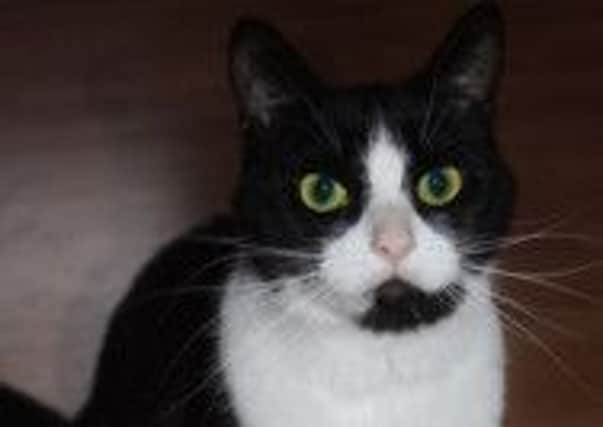Vets plea for cat blood donors


For the last 15 years the staff at The Royal (Dick) School of Veterinary Studies have been conducting sessions with furry donors to help cats who are a whisker away from death.
Feline blood cannot be stored for more than 24 hours so cat owners living close to the Hospital for Small Animals at Easter Bush campus, Bilston, are being asked to sign up so they can rush over in an emergency.
Advertisement
Hide AdAdvertisement
Hide AdA donation of cat blood typically measures between 30 and 60ml – compared to 470ml donated by humans – so the sample is too small to be stored in a human blood bag. Since it has to be stored in syringes, it has to be used quickly, as vets cannot preserve it.
Nicki Reed, head of the feline clinic at The Royal (Dick) School of Veterinary Studies, said: “We have often used the staff’s cats before but around 2004 we had to do a recruitment drive to get more donors.
“We are now having to recruit some more as many of our regular donors are getting close to retirement age – which is around eight years old.
“It does tend to be when we need the blood that we have to contact owners quite quickly.”
There are three types of cat blood – A, B and AB – and the school hopes to increase its pool of donors for all types, although it has a particular need for rarer type B blood as there are only a few kitties on their books with that blood type.
Certain breeds are more likely to have a specific blood type, like Siamese cats which have type A or British shorthair cats which are more likely to boast type B blood.
The furry donors are given a tasty treat afterwards to keep their blood sugar up.
Mrs Reed said: “Most of the cats will go home after an hour or so but sometimes we give them a sedative to make sure they are calm about the whole process. We never want them to have a bad experience.”
Advertisement
Hide AdAdvertisement
Hide AdAs owners need to respond quickly, the team hopes to have a range of donors they can go to.
If that fails, there is a synthetic blood replacement which can be used, but it only lasts for 48 hours. A real blood transfusion can last for a few weeks so is a better long-term solution for sick pets.
Mrs Reed added: “We really appreciate the generosity of owners in helping other cats by allowing their pets to become blood donors.”
Cats that donate up to twice a year would be entitled to free blood transfusions if they fall ill.
Pet owners who would like their cat assessed for suitability should contact the reception at the Hospital for Small Animals on 0131 650 7650 to request a blood donor registration appointment.